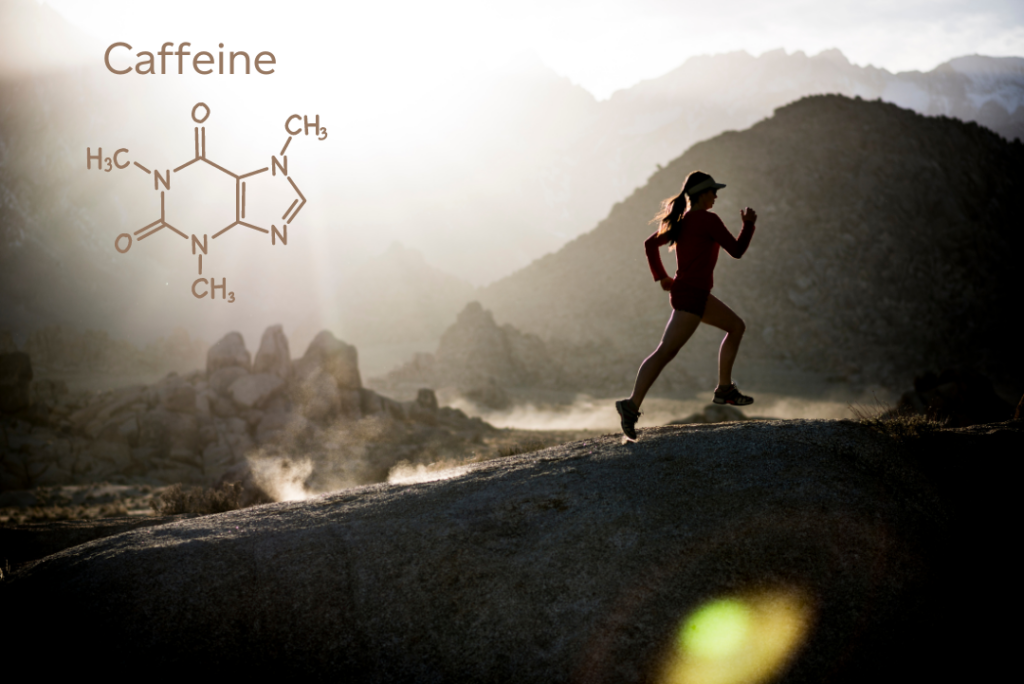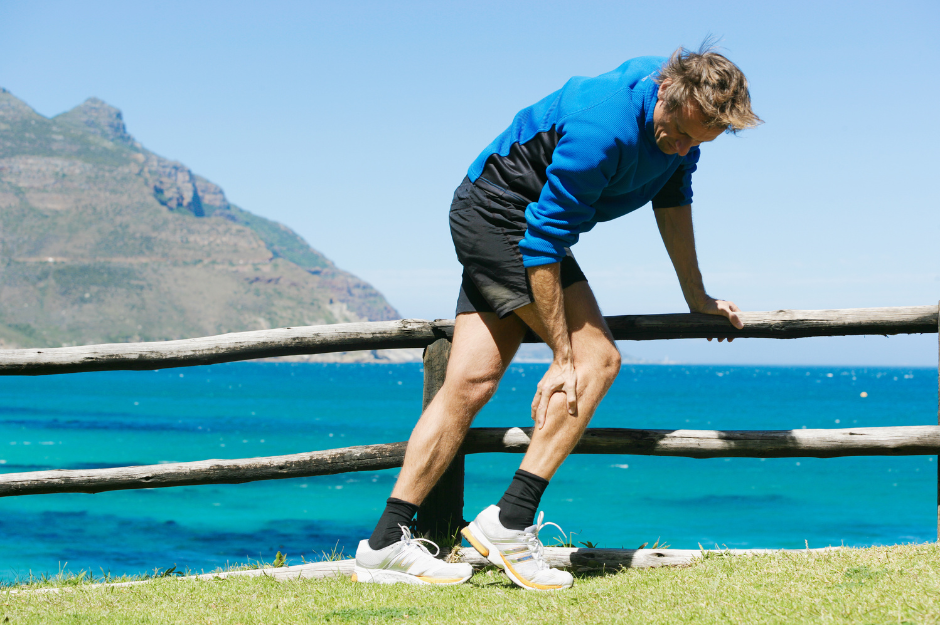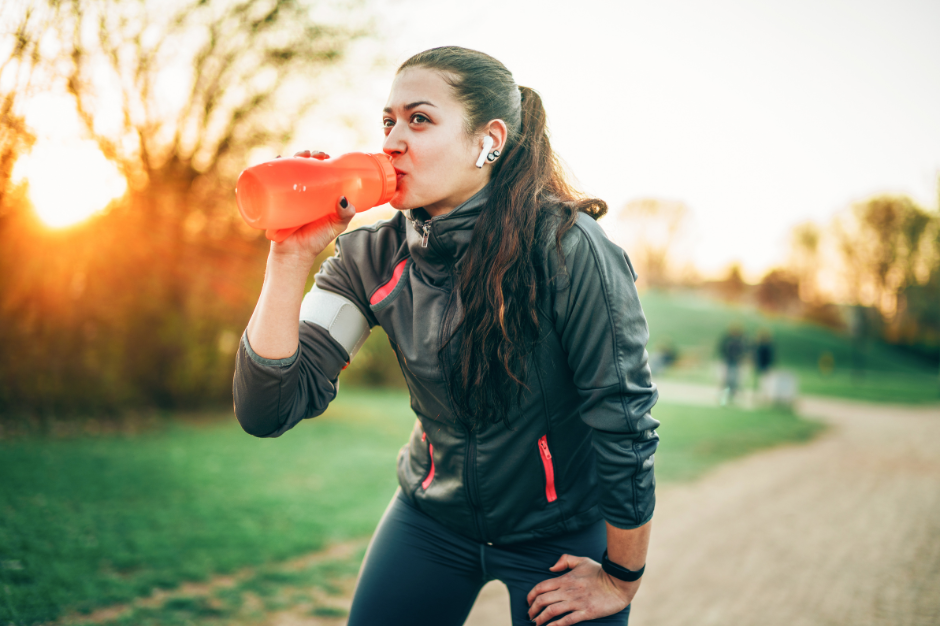

Does Caffeine Dehydrate You During Exercise?
We know that caffeine can boost your performance when fatigued. But will caffeine hinder you from successfully hydrating?
May 22, 2024

Louise Burke, PhD
Dr. Louise Burke is a Professorial Fellow at the Australian Catholic University. She is a distinguished sports dietitian known for her extensive experience counseling elite athletes. She has worked at the Australian Institute of Sport for 30 years and was the team dietitian for the Australian Olympic Teams for the 1996-2012 Summer Olympic Games. She was awarded a Medal of the Order of Australia for her contribution to sports nutrition.
Hydration is a key factor to optimal physical performance, but the rap on caffeine is that it increases dehydration. So should you use caffeine?
When it comes to caffeine and dehydration, Dr. Louise Burke said: “It’s really an overemphasis for most people, particularly people who normally have caffeine in their everyday diets.”
During intense exercise, mechanisms in the body are triggered to conserve water for sweating and temperature regulation. So if you’re exercising right after you get your caffeine fix, the research is clear: In general, there is no consequential increase in fluid loss from caffeine.1,2,3,4 It also doesn’t seem to matter in what form you get your caffeine (e.g., as coffee, as a gel, or as a pill).1,2,5

Canva Pro Images
What about caffeine’s potential to increase urine production (i.e., its diuretic effect)? Most studies suggest there may be a small diuretic effect of caffeine at rest, but in general this can be managed.2 For example, are you a habitual drinker? Habitual drinkers have a tolerance to the diuretic effect at rest if they don’t ingest massive doses. There may be a small effect on hydration levels if you consume more than 500 mg of caffeine that could be managed by having an extra cup of water that day.4,6 However, there’s generally no reason to have so much caffeine – and other outcomes, such as interference with sleep, are likely to be the key issue of concern.
If you have banned caffeine for a while and then have a drink containing more than 300 mgs of caffeine, you may also have more urine output than if you drank the same amount of an uncaffeinated herbal tea.6,7 So an additional cup of water may be helpful in this case, too.

Effects of caffeine can vary by bodyweight
Although the studies in this article looked at total caffeine consumption in mgs, a more personalized approach would calculate the amount in mgs per kg of bodyweight.
Physiological Reasons for Exercise Blunting Caffeine’s Diuretic Effect
When you exercise, your body wants to conserve water for sweating and temperature regulation. One way to achieve this is to release antidiuretic hormone (ADH) from the pituitary gland, which signals the kidneys to conserve fluid.
During intense exercise like a long-distance run, your body reduces and redirects blood flow away from the kidneys to areas like your legs, where it’s needed more. This decrease in blood to the kidneys decreases the rate of fluid that’s filtered by your kidneys,8 resulting in an antidiuretic effect of intense exercise – which is good. You want to have more water available for cooling off via sweating.
“Our caffeine intake is not going to interfere with dehydration, because its effect is so small and usually you’re drinking fluid at the same time,” said Dr. Burke.

Worried about the impact of caffeine on hydration during exercise?

Canva Pro Images
Caffeine’s Diuretic Effect in Women Versus Men
Does caffeine have different dehydration impacts in women than it does in men? It’s hard to tell at this point. According to one meta-analysis, women may be more sensitive to caffeine both at rest and during exercise compared to men. However, this conclusion was drawn by pooling effects from studies that weren’t specifically designed to compare biological sex differences.2 Therefore, more direct research is needed.
“It’s easy to say that we need better evidence around sex differences in caffeine response,” added Dr Burke. “However, the reality is that it’s difficult to collect, because if we think the underlying issue is related to the sex hormones, estrogen and progesterone, a “woman” is a complicated biological specimen.”
They can be premenarche (yet to start having periods), peri- and post-menopausal, pregnant or on hormonal contraceptives. Even among naturally menstruating women, there are different phases of the cycle and many variations of abnormal menstrual functions.
“Overall, there are likely to be differences between and within women that negate a single conclusion,” Dr. Burke pointed out. “Other variables, for example our genes, may create more of an explanation for individual experiences with caffeine.”
From the hormonal profiles of women to genetic factors, there’s no one-size-fits-all answer. In general, however, if you have a small dose of caffeine before exercising, you can enjoy your (habitual) cup of Joe without worrying about having to over-visit the John!
Curious to learn more about caffeine? Read our Human Performance Playbook articles on the topic:
Get Deeply Researched Insights on Human Performance
Join our mailing list to get actionable performance tips and nuanced explanations of the science.
Citations
- Graham, T. E., Hibbert, E., Sathasivam, P. (1998). Metabolic and exercise endurance effects of coffee and caffeine ingestion. Journal of Applied Physiology. 85(3): 883-889. https://doi.org/10.1152/jappl.1998.85.3.883
- Zhang, Y., Coca, A., Casa, D. J., et al (2015). Caffeine and diuresis during rest and exercise: A meta-analysis. Journal of Science and Medicine in Sport. https://doi.org/10.1016/j.jsams.2014.07.017
- Guest N. S., VanDusseldorp T. A., Nelson M. T., et al (2021). International society of sports nutrition position stand: caffeine and exercise performance. Journal of the International Society of Sports Nutrition. 18(1):1. https://doi.org/10.1186/s12970-020-00383-4

Why cite a position paper?
Position papers are a group of experts reading all the latest studies and coming to a consensus about the state of the science. Meta-analyses pool together data from a lot of different studies around the same question to try and see if there is an average overall effect. For complicated topics where studies have inconsistent measures and methods, or where effects can vary depending on numerous factors, position papers are often better than meta-analyses in summing up the evidence.
- Antonio, J., Newmire, D. E., Stout, J. R., et al. (2024). Common questions and misconceptions about caffeine supplementation: what does the scientific evidence really show? Journal of the International Society of Sports Nutrition. 21(1):2323919. https://doi.org/10.1080/15502783.2024.2323919
- Wemple, R. D., Lamb, D. R., McKeever, K. H. (1997). Caffeine vs caffeine-free sports drinks: effects on urine production at rest and during prolonged exercise. International Journal of Sports Medicine. 18(1): 40-46. https://doi.org/10.1055/s-2007-972593
- Killer, S.C., Blannin, A.K., Jeukendrup, A.E., et al. (2014) No evidence of dehydration with moderate daily coffee intake: a counterbalanced cross-over study in a free-living population. PloS One. 9(1):e84154. https://doi.org/10.1371/journal.pone.0084154
- Maughan, R. J., Griffin, J. (2003). Caffeine ingestion and fluid balance: a review. Journal of Human Nutrition and Dietetics. 16(6): 411-420. https://doi.org/10.1046/j.1365-277x.2003.00477.x
- Poortmans J.R. (1984) Exercise and renal function. Sports Medicine. 1(2):125-53. https://doi.org/10.2165/00007256-198401020-00003
Playbook Terms of Use & Copyright
©2023-2024



